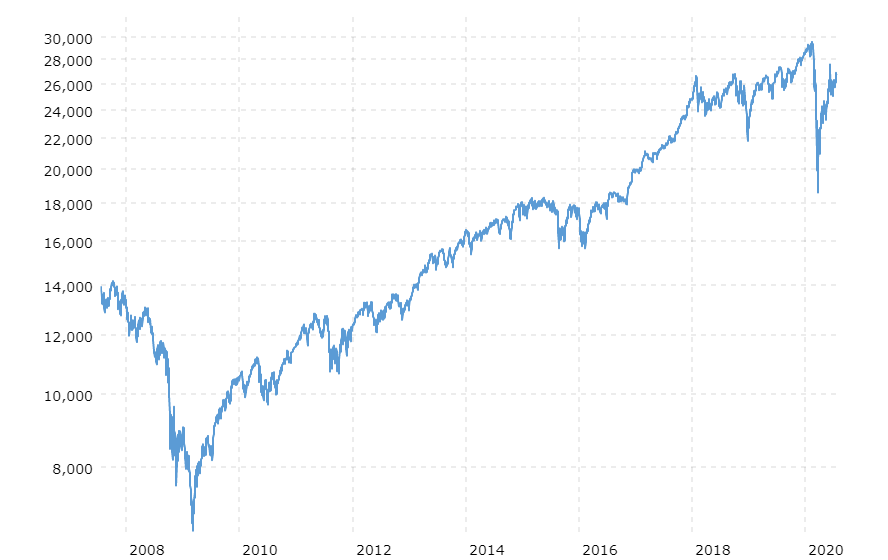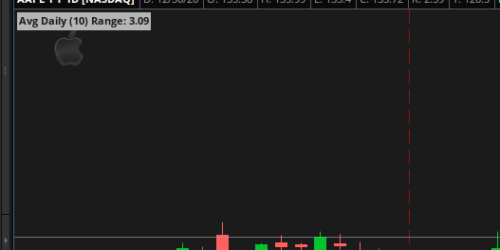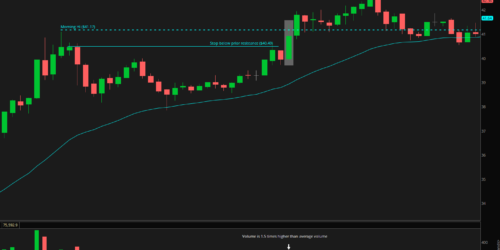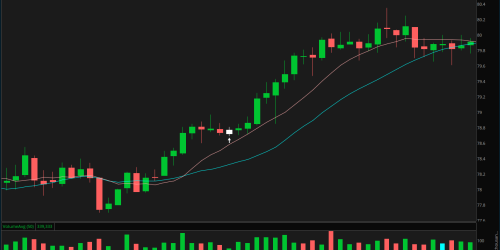Retirement Plans & IRAs

We may earn commissions from the companies mentioned in this post. View our FTC disclosure for more information.
I’ve been planning to start planning for retirement for the last decade, and the time has finally come for me to move forward and begin funding my accounts. I admit, regardless of my preparations, the studying, the reading, I’m overwhelmed. I still come from that mentality that investing in the stock market is some kind of gamble, but the more I read and learn about it, the more I realize it’s not a gamble at all.
My latest read is The Truth About Retirement Plans and IRAs, by Ric Edelman. It’s available on Amazon. I’m about halfway through it and, thus far, the advice has been reasonable and seemingly sound. I don’t want to say too much about his recommendations since I haven’t finished the book, but I will say that the theme up to the point at which I’ve read has been pro stock market index funds. The concept that dollar cost averaging removes the risk associated with attempting to time the market is emphasized.
So why is stock investing overwhelming?
I can only answer this from my own perspective, but I’ll do my best to clarify my concerns. If you have advice please leave it in the comments. I would love to discuss this! I’m also hoping the aforementioned book might shed some light as I continue reading.
My questions revolve around investment “products.” The way I understand it, a stock market index fund is a mutual fund (the product) that buys all the stocks in a particular index to take the guess work out for common folks. It mirrors the index because, historically, actively managed mutual funds rarely beat the overall market over a period of time. I like the idea, and I can totally get on board with it.
What’s to stop an individual like me from simply buying stock in all the underlying funds? Would that be simply too much to maintain? Would it be worth it to try since you would save on associated fund management fees? I just can’t answer these questions. One of the funds I’m looking at is the Vanguard Total Stock Market Index Fund Admiral Shares. Its expense ratio is 0.04% and it holds 3,531 stocks as of this writing. It would obviously take a bit of time and planning to set up automatic investments into over 3,500 stocks, but would saving 0.04% be worth that trouble?
I have an IRA. I opened it four years ago and steadily put $50 a month into it. It grew over time, and I was very excited to see that, but an unexpected life event drained it. I know the importance of having an emergency fund, but I’m sure you can all agree that it’s easier said than done for most people. I’m starting from square one with no debt (besides a modest mortgage with a very low interest rate), and a decent salary at a job that I want to quit. The struggle is real, and I’m conflicted about what to do. Through the job, I have a pension fund in which I’m vested that contains around $30,000. If I leave that job I can reinvest that money or roll it over into my IRA (I think). At least I’m not at square zero, right?
The asset in my IRA is a target date fund, which I chose early on because it seemed like the most reasonable thing for me. Now, after some research, I’ve found that its only real benefit is that it automatically adjusts its asset mix over time to protect from market volatility the closer you get to retirement. Is that the same thing as re-balancing? Is that worth the 0.15% expense ratio, or could I invest in some index funds and re-balance myself?
The most recent play I made was to open a Robbinhood account so I could see what the hype is about. I actually really like it, and they make it easy to trade stocks. I’ve noticed that my Vanguard account is a little clunky to use, and I always feel like I’m making a bad decision. With Robbinhood, you also get a free stock when you sign up! They then give you a referral link you can share with others, and when they sign up you both get a free stock. They’ll give you up to $500 a year in free stocks, which is a really smart way to grow their business. Trades are free, as far as I can tell. I’m assuming they make their money from additional features they sell. I got a stock worth a little over 4 bucks! I’m $4 richer, and didn’t have to work for it. It’s funny when you look at it that way. Wealthy people that never earned their wealth, and get wealthier from the money they inherited take it for granted how difficult it is for the rest of us. I’m not complaining, just thinking out loud.
I want freedom, and I’ve only recently realized what that means. I’ve always rejected this absurd system of acquiring and growing wealth for philosophical reasons. Now that I understand that playing the game is the best choice if you want to do good in the world, I’m gonna play it, and I’m gonna play hard.





